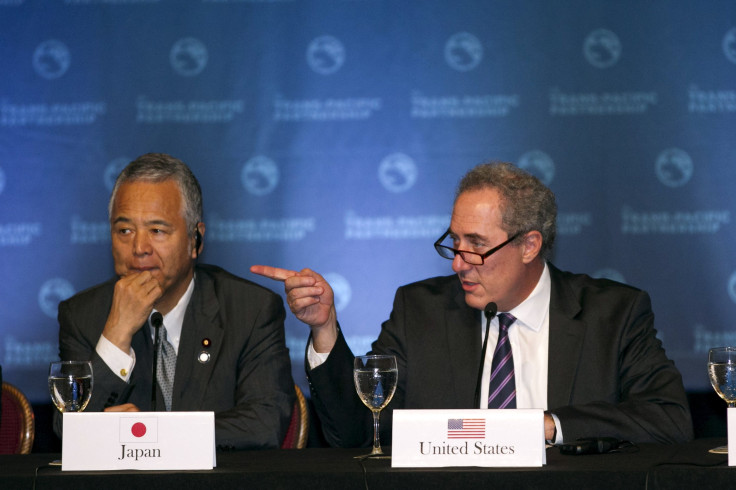
Negotiations for the Trans-Pacific Partnership formally concluded on Monday after years of of haggling between partner countries. The details of the TPP are still secret, but an outline of the deal has been supported and attacked by American politicians on both sides of the aisle. Here are 6 things you need to know about the deal right now.
Biggest Trade Deal Of The 21st Century
If passed, the TPP would be the biggest trade deal since the creation of the WTO in 1994, according to FT. Affecting more that 40 percent of global trade, the rules outlined in the agreement would change global economies for decades to come.
Opponents of TPP often compare it to NAFTA, the 1990s North American Free Trade Agreement that preceded a decline in American manufacturing. Supporters often say that the deal is fundamentally different than NAFTA.
Precise Language Of The Deal Is Secret
Opponents of the Trans-Pacific partnership point out that the details of the accord are secret, and won’t be released for another month, when national legislative bodies will be asked to approve the deal. WikiLeaks has called for a $100,000 bounty on an information leak, hoping to reward an insider for sharing chapters of the secret deal. Supporters argue that negotiations must be scecret to allow frank discussions before a final deal is reached. Now that that has happened, the secrecy will soon be over.
What It Does
We know so far that the Trans-Pacific Partnership would lower trade tariffs, increase patent protections and strengthen the power of international business arbitration. Those three provisions are highly controversial, as they could reshape everything from manufacturing employment to health care costs and national sovereignty.
Additional provisions may increase labor and environmental standards, but opponents dispute this. We won’t know exactly how it would work until the final language is made public.
12 Nations Are Negotiating The TPP
Mexico, Peru, U.S., Australia, Canada, Japan, Malaysia, Vietnam, Chile, Brunei Singapore and New Zealand all have a stake in the deal. Not that one country on the Pacific isn’t on that list: China. In a sense, the deal is meant to counteract China’s growing influence on the world economy.
Obama Supports The TPP
Obama has broken with his traditional progressive allies to support the deal, saying that it’s a key measure to counteract Chinese influence.
“[We] can’t let countries like China write the rules of the global economy. We should write those rules, opening new markets to American products while setting high standards for protecting workers and preserving our environment,” The President said in a statement on Monday.
Many Presidential Candidates Oppose The TPP
Leading Republican and Democratic presidential candidates see the deal as a compromise of sovereignty. Trump has called it a “bad deal,” Martin O’Malley opposes it, and Hillary Clinton has expressed some concerns, despite helping lay the groundwork for the deal as Obama’s Secretary of State. Supporters include Ted Cruz, Jeb Bush and others.
Here’s a sampling of what candidates have said about the deal.
Bernie Sanders : “This agreement follows failed trade deals with Mexico, China and other low-wage countries that have cost millions of jobs and shuttered tens of thousands of factories across the United States,” the Vermont Senator said in a statement on Monday.
Carly Fiorina : “I am very uncomfortable with this deal,” the former CEO said in May.
Jeb Bush : “I agree with what Hillary Clinton said about TPP in 2012: ‘This is a great deal for America,’” the former Florida Gov. said in a blog post in August .
For more details on the TPP, check out our previous reporting, below.
© 2025 Latin Times. All rights reserved. Do not reproduce without permission.





